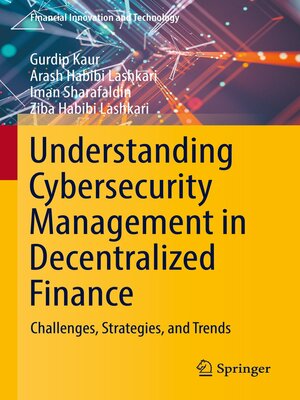Understanding Cybersecurity Management in Decentralized Finance
ebook ∣ Challenges, Strategies, and Trends · Financial Innovation and Technology
By Gurdip Kaur

Sign up to save your library
With an OverDrive account, you can save your favorite libraries for at-a-glance information about availability. Find out more about OverDrive accounts.
Find this title in Libby, the library reading app by OverDrive.



Search for a digital library with this title
Title found at these libraries:
| Library Name | Distance |
|---|---|
| Loading... |
This book discusses understand cybersecurity management in decentralized finance (DeFi). It commences with introducing fundamentals of DeFi and cybersecurity to readers. It emphasizes on the importance of cybersecurity for decentralized finance by illustrating recent cyber breaches, attacks, and financial losses. The book delves into understanding cyber threats and adversaries who can exploit those threats. It advances with cybersecurity threat, vulnerability, and risk management in DeFi. The book helps readers understand cyber threat landscape comprising different threat categories for that can exploit different types of vulnerabilities identified in DeFi. It puts forward prominent threat modelling strategies by focusing on attackers, assets, and software.
The book includes the popular blockchains that support DeFi include Ethereum, Binance Smart Chain, Solana, Cardano, Avalanche, Polygon, among others. With so much monetary value associated with all these technologies, theperpetrators are always lured to breach security by exploiting the vulnerabilities that exist in these technologies. For simplicity and clarity, all vulnerabilities are classified into different categories: arithmetic bugs, re-Entrancy attack, race conditions, exception handling, using a weak random generator, timestamp dependency, transaction-ordering dependence and front running, vulnerable libraries, wrong initial assumptions, denial of service, flash loan attacks, and vampire
Since decentralized finance infrastructures are the worst affected by cyber-attacks, it is imperative to understand various security issues in different components of DeFi infrastructures and proposes measures to secure all components of DeFi infrastructures. It brings the detailed cybersecurity policies and strategies that can be used to secure financial institutions. Finally, the book provides recommendations to secure DeFi infrastructures from cyber-attacks.







